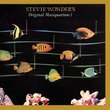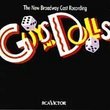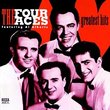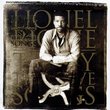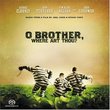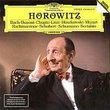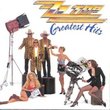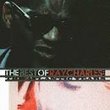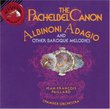| All Artists: Arnold Schoenberg, Pierre Boulez, Siegmund Nimsgern, BBC Singers, BBC Symphony Orchestra, New York Philharmonic Title: Schoenberg - Die Glückliche Hand · Variations for Orchestra, Op.31 · Verklärte Nacht / Nimsgern · BBC Orch. · NY Phil. · Boulez Members Wishing: 1 Total Copies: 0 Label: Sony Release Date: 7/13/1993 Genre: Classical Styles: Opera & Classical Vocal, Historical Periods, Modern, 20th, & 21st Century Number of Discs: 1 SwapaCD Credits: 1 UPC: 074644846423 |
Search - Arnold Schoenberg, Pierre Boulez, Siegmund Nimsgern :: Schoenberg - Die Glückliche Hand · Variations for Orchestra, Op.31 · Verklärte Nacht / Nimsgern · BBC Orch. · NY Phil. · Boulez
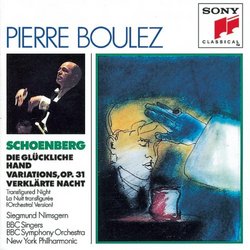 | Arnold Schoenberg, Pierre Boulez, Siegmund Nimsgern Schoenberg - Die Glückliche Hand · Variations for Orchestra, Op.31 · Verklärte Nacht / Nimsgern · BBC Orch. · NY Phil. · Boulez Genre: Classical
This is one of the best discs in this series. The expressionist drama Die Gluckliche Hand is one of Schoenberg's most experimental works, and though the Freudian expressionism is dated, the music is surprisingly enjoyable.... more » |
Larger Image |
CD DetailsSynopsis
Amazon.com This is one of the best discs in this series. The expressionist drama Die Gluckliche Hand is one of Schoenberg's most experimental works, and though the Freudian expressionism is dated, the music is surprisingly enjoyable. The opening minutes create one of Schoenberg's most evocative atmospheres, a musical jungle, with soft drums beating eerily, a forest of instrumental melodies, and voices chanting. Siegmund Nimsgern is a solid bass. Pierre Boulez has remarked that the Variations for Orchestra is essentially a didactic exercise in serial variations, but the work still has much to offer, the abstract musical material is developed in every conceivable expressive way. Finally, the orchestral arrangement of Transfigured Night--a Straussian tone poem in black and white--is given an unexpectedly emotional reading by Boulez at the helm of the New York Philharmonic. --Joshua Cody Similarly Requested CDs
|
CD ReviewsYou'll feel lucky when the Happy Hand touches you Sam | 11/02/2007 (5 out of 5 stars) "Die glückliche Hand alone is already a good reason for purchasing this CD - this work is very rarely recorded (Boulez's was only the second recording ever, and it was issued in 1981!), the few other recorded alternatives being mainly live performances (including one by as legendary a conductor as Hermann Scherchen). Here is your only opportunity to get the full libretto, and what strikes one is that it almost entirely consists of scene indications, with the Man's words reduced to a minimum (he mainly admires the woman's beauty and wishes he could stay with her forever) and at both ends of the work, the choir of 6 men and 6 women blaming him for seeking things that he cannot obtain while he could be happy with his self. Numerous and quick changes in the colour and intensity of light are requested by Schoenberg throughout, and he describes very precisely what the characters should do on the stage and their surroundings - you would obviously benefit even more from the whole of it if you experienced the work on a stage or at least on film, rather than trying to imagine the scenery! I recommend you to read the whole of them before listening, otherwise you will end up the nose in the booklet without hardly any time to listen to the music! The Happy Hand depicts a man's quest for love from a woman who excites him but always ultimately rejects him to join her lover, a dandy. The lovers are supposed to appear to him as in a dream, and he by the way hardly ever sees them as he mostly stands on the front facing the public while they are moving behind. This `hand' is supposed to represent what urges one to make the same mistakes repeatedly while following one's desires. Psychoanalysis determined the choice of the subject, with the obstacles to the man's dreams and desires being represented by a bat-winged cat-like beast sucking blood from his nape at the very beginning and end (and taking the shape of a rock that falls upon the man in between!), or the rage of a couple of workmen as the man manages to create a golden jewel after breaking an anvil on a single hammer stroke... You also get a fine recording of Variations op. 31, though Boulez achieved much more unity, perfection of ensemble and a greater sense of nuances in his subsequent recording with the Chicago Symphony Orchestra (coupled with his only recording of Pelleas and Melisande on Warner). Boulez also conducts a dramatic performance of the string orchestra version of Die verklärte Nacht, with the feelings of the characters depicted as vividly as possible without the work being overly romanticized and sentimentalised - so to me he finds here a better balance in this work than Karajan, who tends to use it (like Strauss' Metamorphosen) as a mean of displaying the virtuosity of his strings. It also makes a fascinating comparison with Boulez's other recording - the one of the string sextet original scoring. The way Boulez's recordings of Schoenberg works on Sony have been combined on CD leaves me puzzled though - for instance you have here three works representing three different steps in the composer's career, whose unchronological order in the tracking moreover makes the overall listening sound like a series of anachronisms - Die verklärte Nacht sounds almost reactionary coming after the Variations! Coupling Die glückliche Hand with Erwartung would have made much more sense, all the more as not everyone will be drawn both to postromantic and dodecaphonic works. Here is maybe the reason why the CD was deleted despite containing an account of the much-loved Transfigured Night by a great conductor. And there are surprisingly no many more alternatives left in the catalogue, apart from Karajan..." Worth it for Gluckliche Hand... Bob | Mobile, Alabama United States | 10/08/2003 (4 out of 5 stars) "It's pretty hard to find a first-rate recording of one of Schoenberg's operas that comes complete with a libretto. Not only is this a first-rate recording with a libretto, it's also a bargain! I'm not too wild about the Boulez rendition of Op. 4 though. I like Karajan's version much better, but that's just a personal preference." All Boulez/Sony paul best | new orleans | 03/19/2006 (5 out of 5 stars) "In Berg, WEbern , Schonberg very highly recommended.
Yeah I realize there are english casting in some of the Schonberg choral/operas, the works were scored in german. I realize this . But somehow the english chorus'/solists (there are a few germans cast in some cds) but its the finest in terms of orch/conducting/soloist voice quality. This is based upon my extensive collections in Berg, Webern, Schonberg, on many other labels, german casting. I'll let this comment stand for all the Boulez/Sony releases. I am not refering to his Erato not DG releases. Schonberg was a supreme genius in all his scores, only his Pelleas he mentioned he did not care for the opening part. btw I have to say A music Fan May 5,1999, does have a point. there are a number of children playing with those voting buttons. " |

 Track Listings (23) - Disc #1
Track Listings (23) - Disc #1